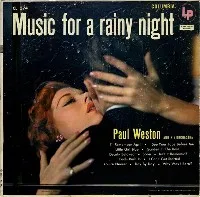Styles: Jazz, Vocal
Year: 2000
File: MP3@320K/s
Time: 41:12
Size: 94,8 MB
Art: Front
(3:36) 1. All You Really Need Is The Girl
(2:48) 2. Idea Of Love
(3:45) 3. A Handful of Stars
(2:06) 4. Cupid Got Us Both
(4:53) 5. I Don't Want To Love You
(2:45) 6. Love Can Turn You On
(2:09) 7. (You Can't) Unring A Bell
(3:21) 8. Lover, Come Back To Me
(3:01) 9. Stay Out Of My Dreams
(2:32) 10. It's Gotta Be You For Me
(4:50) 11. Until It Happens To You
(5:19) 12. (That's When) I Saw Stars
Year: 2000
File: MP3@320K/s
Time: 41:12
Size: 94,8 MB
Art: Front
(3:36) 1. All You Really Need Is The Girl
(2:48) 2. Idea Of Love
(3:45) 3. A Handful of Stars
(2:06) 4. Cupid Got Us Both
(4:53) 5. I Don't Want To Love You
(2:45) 6. Love Can Turn You On
(2:09) 7. (You Can't) Unring A Bell
(3:21) 8. Lover, Come Back To Me
(3:01) 9. Stay Out Of My Dreams
(2:32) 10. It's Gotta Be You For Me
(4:50) 11. Until It Happens To You
(5:19) 12. (That's When) I Saw Stars
April Barrows is an unusual jazz performer in two respects. One is that she lives in Nashville, the home of country music. The other is that she writes originals that sound as if they are swing standards from the 1930s. Her voice is lovely and sweet, a little reminiscent of a younger Maria Muldaur although having her own personality. On All You Need Is the Girl, she performs two jazz standards ("A Handful of Stars" and "Lover, Come Back to Me") along with guitarist David Hungate's "It's Gotta Be You for Me," but it is her nine originals that really stand out. Several of the songs, particularly "I Don't Want to Love You," "You Can't Unring a Bell," and "Until It Happens to You," could catch on if they were heard and adopted by other singers.
In fact, all nine of Barrows' tunes are potential standards in need of discovery by today's vocalists, particularly those who are looking for fresh material. Backed by a few overlapping combos that include Hungate on guitar and trombone, pianist Matt Rollings, and the warm tenor sax of Dennis Solee plus a guest appearance by the late Chet Atkins on "I Saw Stars," April Barrows' vocals are infectious, sometimes touching, and always fun. She deserves to be much better known. Get this CD and see why.
~ Scott Yanow http://www.allmusic.com/album/all-you-need-is-the-girl-mw0000302735




